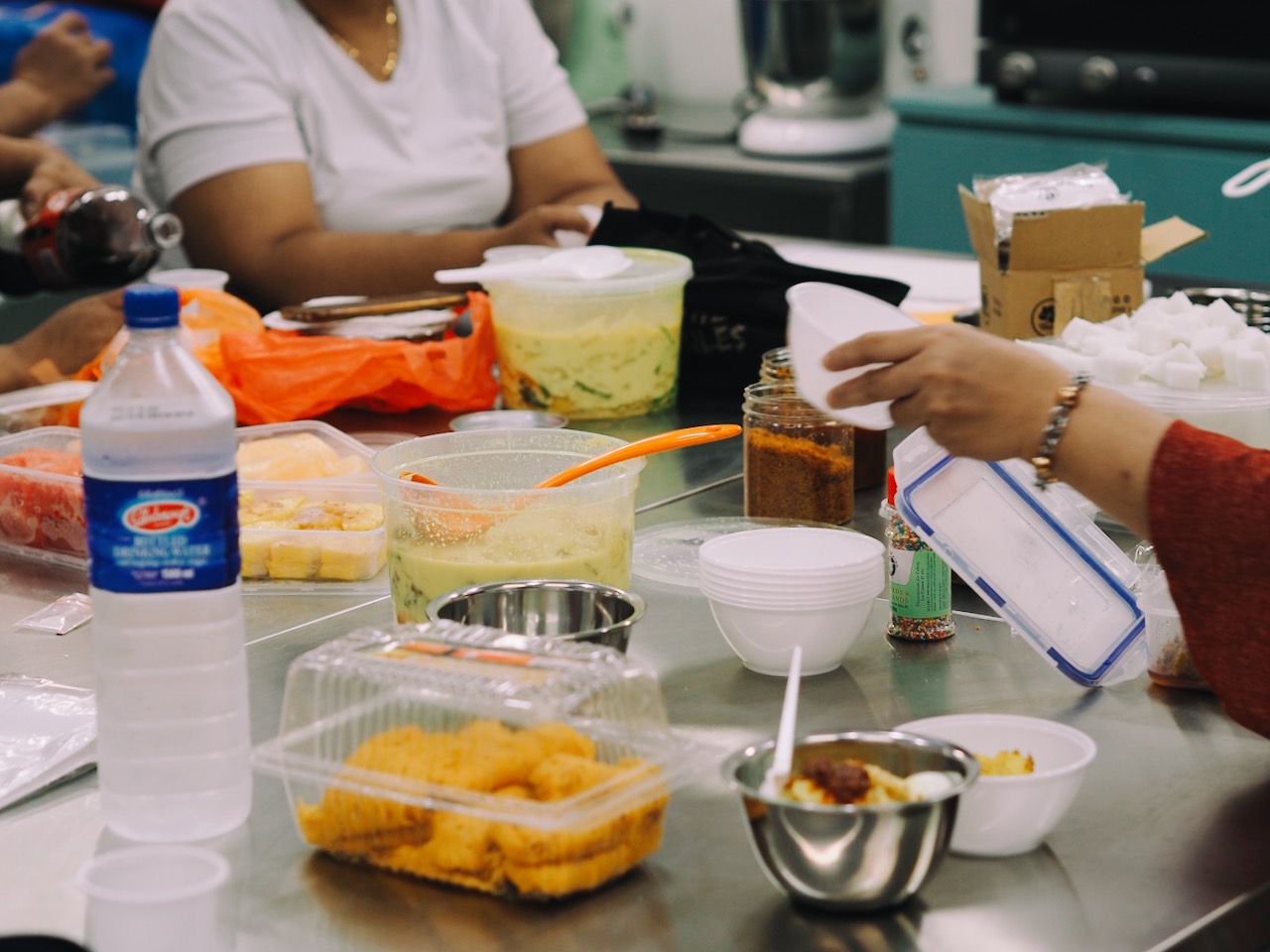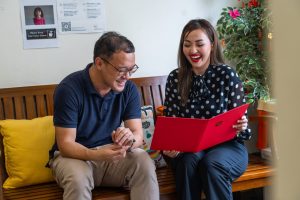When I think of “self-care”, the housing estate of Whampoa Drive doesn’t come to mind.
Just before lunch on a Friday morning, its surroundings are mostly peaceful. Even though the estate is situated near a main road, it seems to be enclosed within a bubble, muffling the sound of distant traffic.
The occasional human passes through the adjacent void decks, seemingly coming from a nearby market or school. Several pigeons peck at stray pieces of food on the pavement, occasionally fluttering away before returning. A rubbish collection ‘buggy’ rumbles to a stop in front of the rubbish chute at the opposite block.
I am—evidently—miles away from a luxurious salon, hip cafe, or chi-chi yoga studio with perky, deranged posters. But Whampoa Drive, with its spartan environment, is the exact location where a group of lower-income women regularly gather for self-care—a term that, ironically, has often excluded their demographic from its existing narrative.
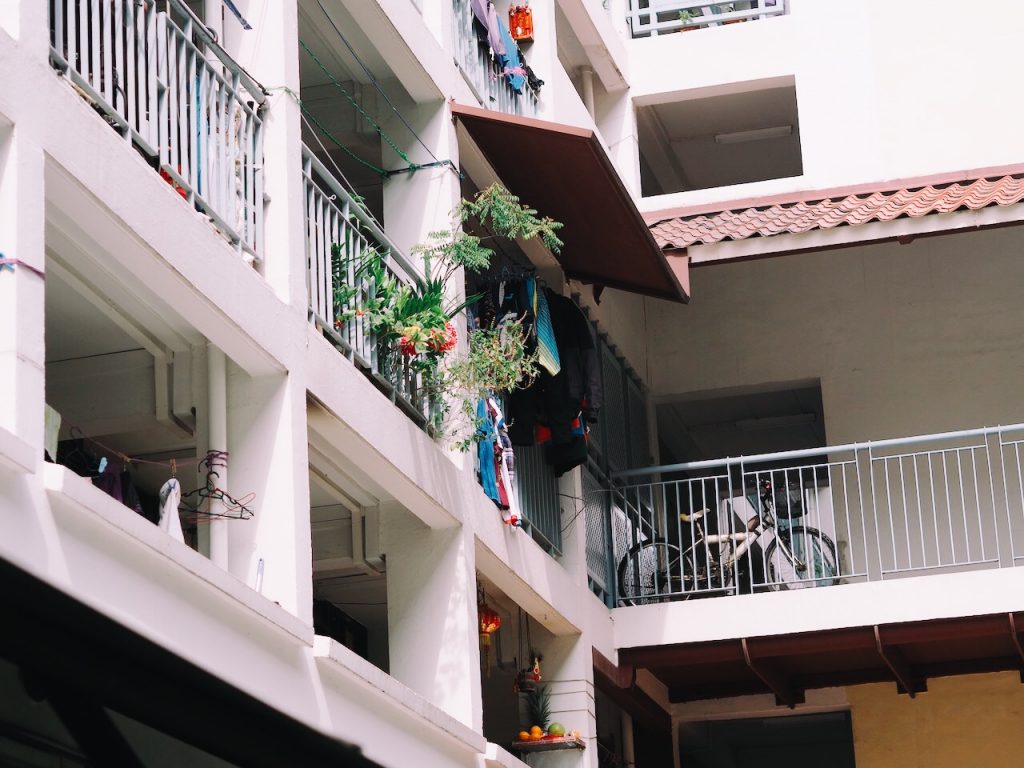
To a certain degree, it can. Having a sufficient amount of money that it removes financial distress buys you peace of mind. While it might not buy you happiness per se, it allows you to pursue happiness by looking after your mental wellbeing. For example, taking a cab if one doesn’t want to deal with the anxiety of taking public transport on a rough day, or seeking help from a professional therapist are benefits that only come with a certain degree of privilege.
So where does that leave the lower-income community—the very people who might most require extra time for themselves simply because of the chronic stress of poverty?
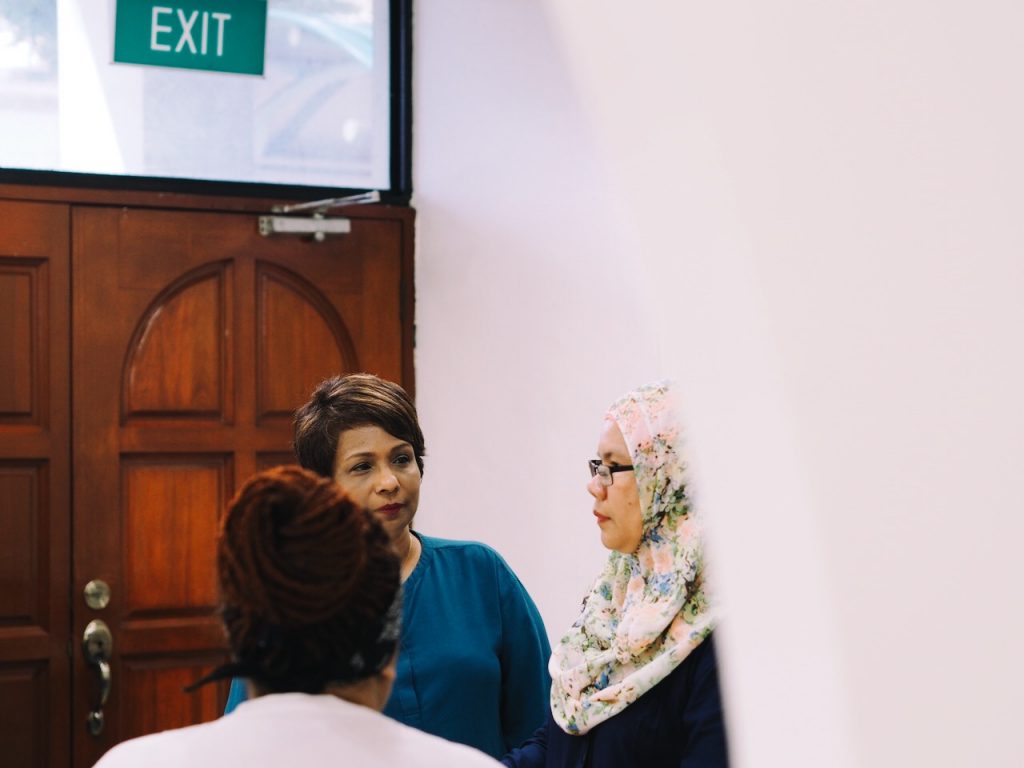
“We brought together women who were trying to find work but couldn’t find one with suitable hours. These were single mothers, widows, mothers who are here on long-term pass but find it difficult to get work in their early days, women living in rental housing, women who wanted supplement income because their husband’s wasn’t enough, and women whose husbands are incarcerated, to name a few,” shares Stella Jayanthi, a team leader at Beyond Social Services.
“Many of them were already doing bakes at home, but the synergy when they came together was very interesting. They come with a lot of history, as well as ideas and recipes from mothers and grandmothers.”
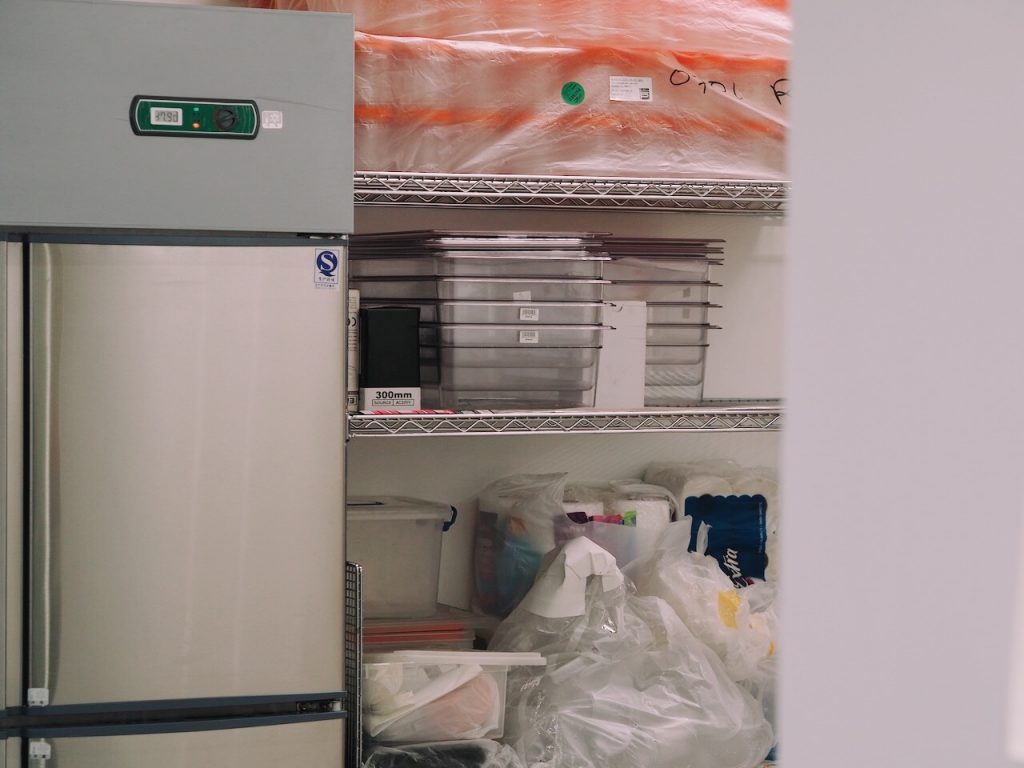
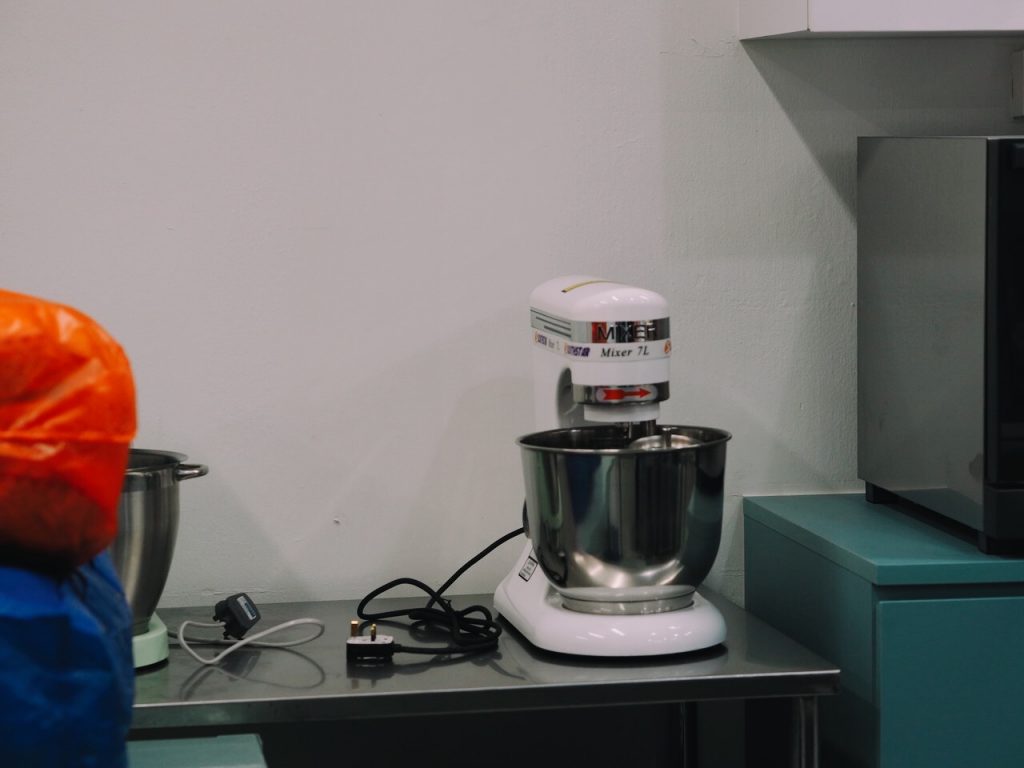
The space at Whampoa Drive is, according to Stella, “big enough to dream”. These women usually come from homes where space is painfully limited, such as having 10 family members share a two-room flat, so their dreams of baking and cooking are often restricted by reality. At home, every available corner is given to children, furniture, and personal belongings.
At Bakers Beyond, however, the ovens are able to cope with big orders. There is enough surface area for them to cool their baked goods. They can “scale up” if they desire.
Moreover, having projects and deadlines enables the women to focus on something else besides their stressful family situations. Knowing their baking can make others happy alleviates their own depressive moods by giving them fulfilment.
For these women, self-care is caring for strangers.
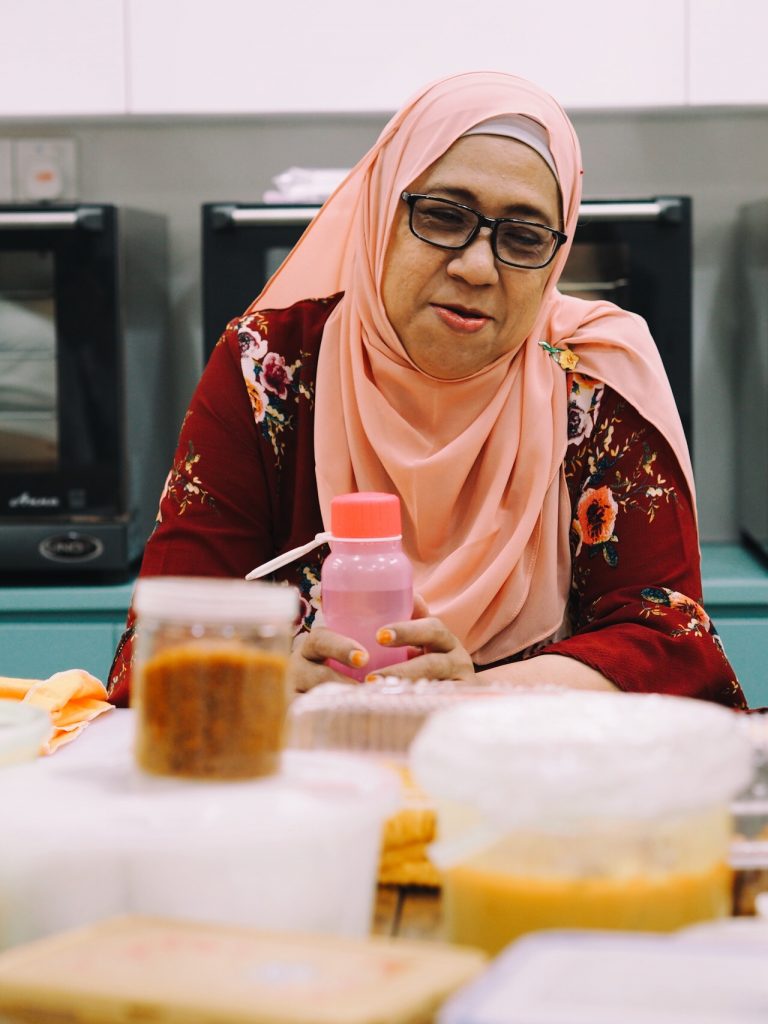
Because their situations often lead to depression, the community at Bakers Beyond aims to nip the problem of social isolation in the bud. One woman, who has since left the group, found that the camaraderie lifted her out of a rough patch when she lost her home and had to move into a much smaller space.
“[In community work], whenever we find a family who’s isolated, the first thing we do is connect them to neighbours. It’s like a breath of fresh air,” says Stella.
“Likewise, at Bakers Beyond, the women can put aside their stresses for awhile. Have a good laugh. Have a nice meal. This is talk therapy. In talking and sharing, this is how women heal.”
It takes me barely an hour to get acquainted with this friendship dynamic, one that comprises both inside jokes and unwavering support and understanding for each other. There are stories of divorce and separation, incarcerated husbands, and even husbands who’ve recently passed away after a bout of critical illness. All the women talk about the need to continue providing for their children.
When I ask how they care for themselves when they’re down, their answers are choppy and uncertain. They don’t intentionally carve out alone time. If there is any, it’s usually a product of social isolation from lacking the confidence and independence to go out, or any leftover time after attending to their family’s needs.
I get the sinking feeling that none of them have learnt how to prioritise themselves, until Bakers Beyond came knocking.
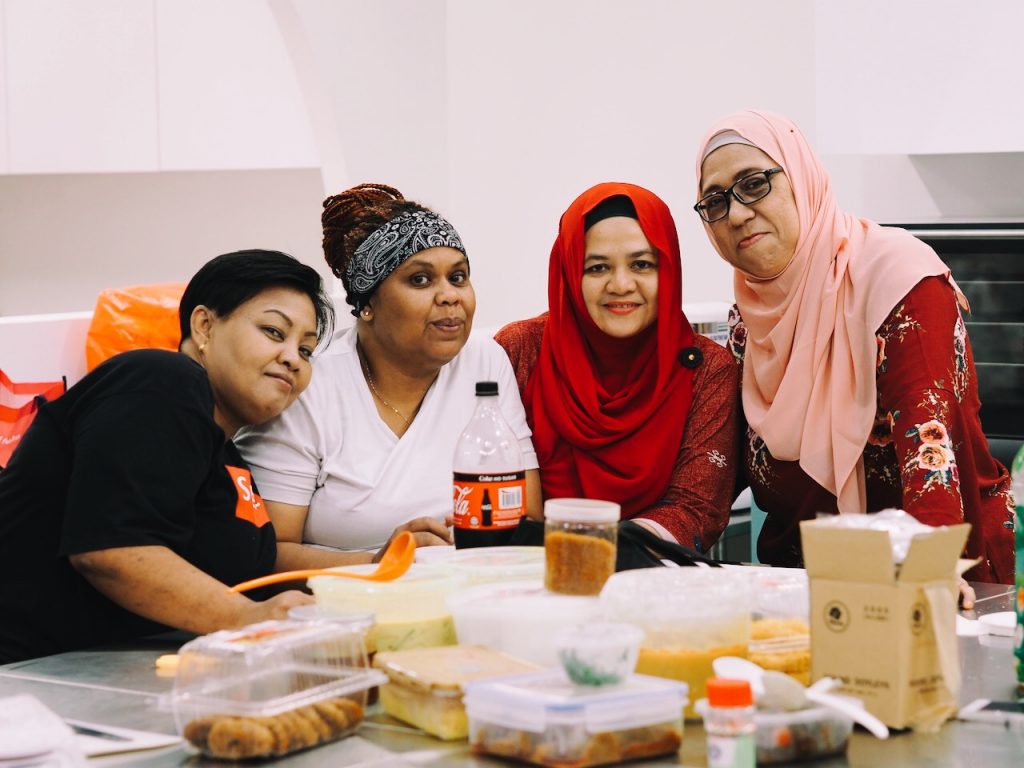
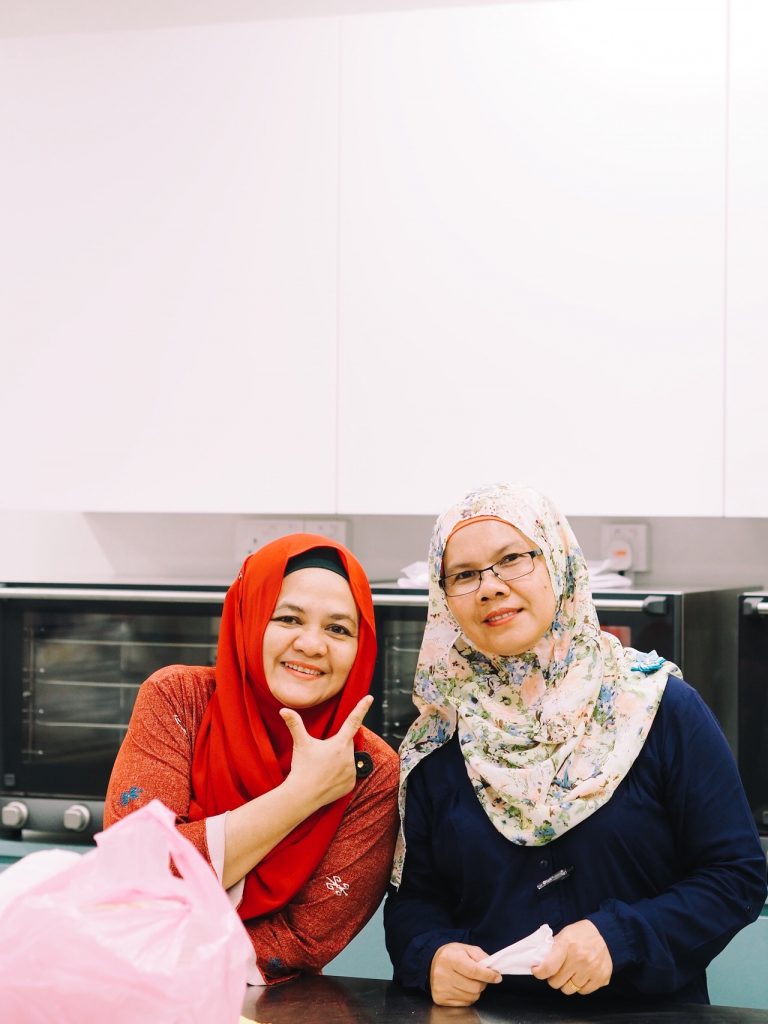
Similarly, Rina has also become more independent and sociable since joining Bakers Beyond five years ago when her husband entered prison. With three teenage children, she says she has “no free time to be sad”, but when she is, she turns to her love of cooking to lift her spirits. Her favourite dish to cook is roti kirai, which she’s kindly made a huge serving that day as a ‘test run’ for an upcoming Beyond event.
Hayati, whose late husband passed away after battling critical illness, feels a new lease of life since joining the group. She admits to having low self-esteem in the past, but reaching out to Bakers Beyond allowed her to earn an income again.
After her late husband fell ill, she stopped working entirely. Having previously been the sole breadwinner, this meant her family had to get by on their savings for the next six years, albeit with help from social workers.
When Hayati is stressed these days, she turns to “spring cleaning” at home, such as “changing furniture here and there”. Once her family goes to bed, she heads downstairs to be alone and listen to music.
Even though many of the women turn to ‘free’ things to cheer themselves up—such as going to the beach—simply knowing they have each other’s back is often enough.
Faridah, another baker, shares that “seeing other ladies have problems” and “being there to give advice and help” lessens her stress. She takes comfort in deriving a solution to her own problems by sharing her experiences with the group.
When she has saved enough money, she visits Johor Bahru with Azizah, her good friend and another baker within the group. The currency conversion rate allows them to “eat seafood” and even buy “extra food” for their children.
Azizah, who has four children, doesn’t receive any maintenance or support from her ex-husband. Outside of Bakers Beyond, she cooks for an elderly centre, where she enjoys seeing residents feel happy after eating what she makes.
After I sample the lontong that she’s cooked, I understand the happiness anyone would be overcome with after tasting her food.
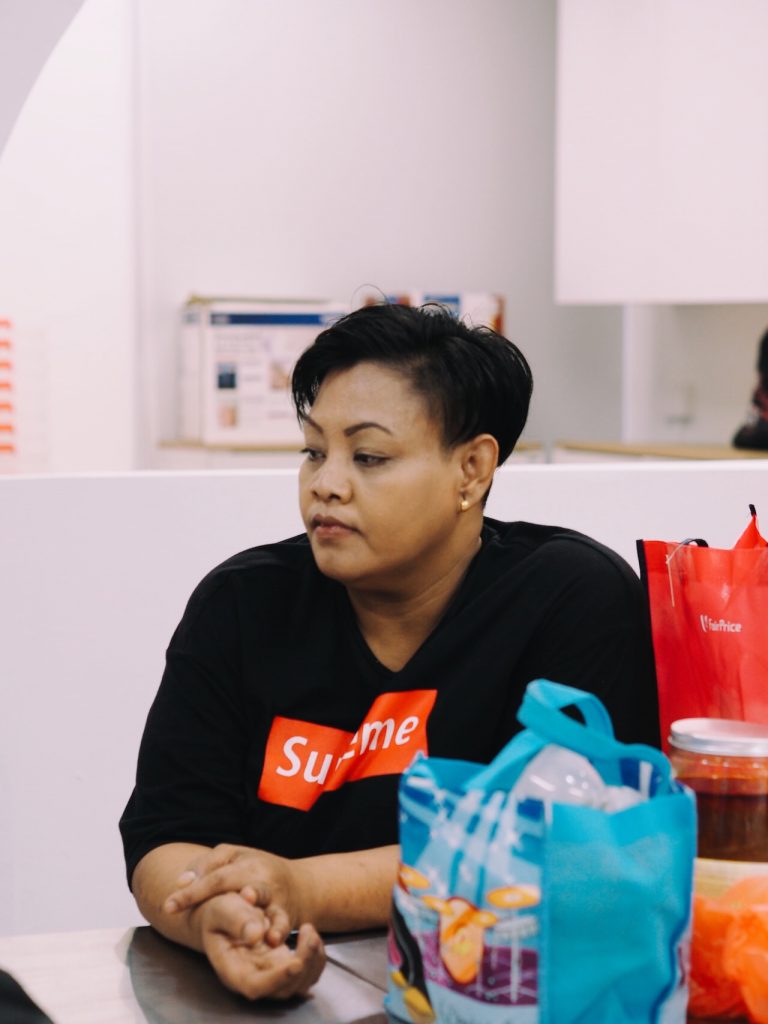
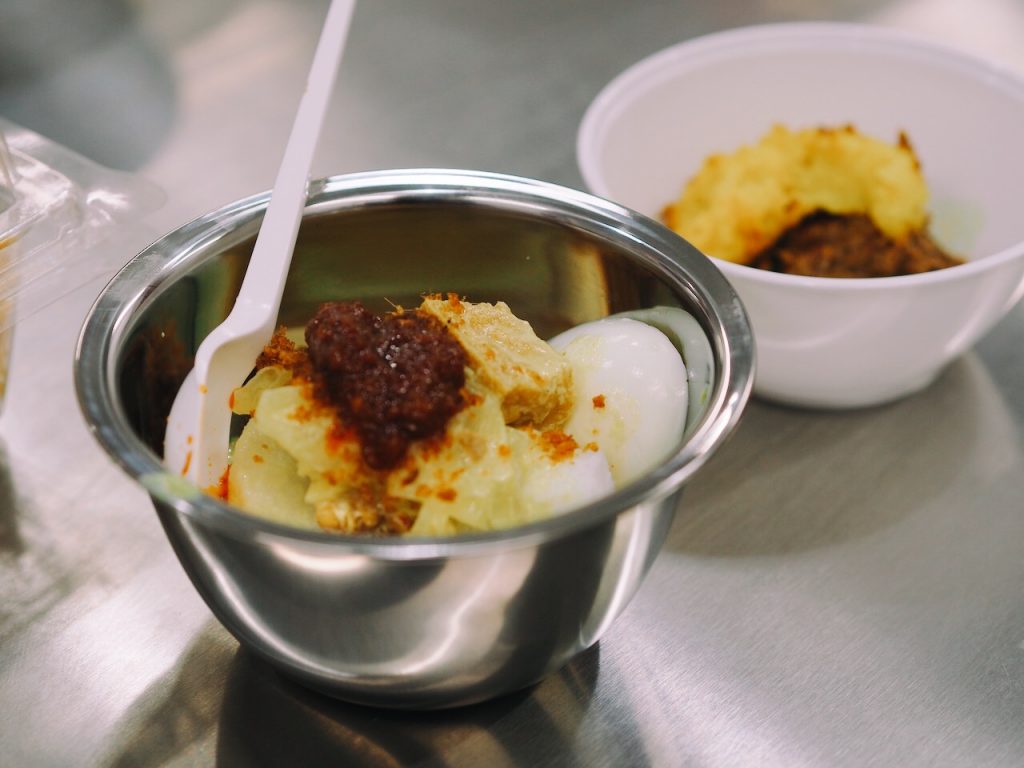
This notion of self-care tends to overlap with self-optimisation, which is associated with upgrading ourselves for the sake of appearing like we have everything together. It’s the real life version of a perfectly curated Instagram feed.
When I first pitched this story to explore self-care within the lower-income community in Singapore, I wanted to understand whether these existing middle/upper-middle class ideas of self-care had proliferated a demographic that would probably feel excluded from the conversation. After spending time with Bakers Beyond, I learn the answer is no.
From their perspective, self-care lies in addressing one’s most basic needs. As a result, their methods of self-care tend to be equally simple and straightforward.
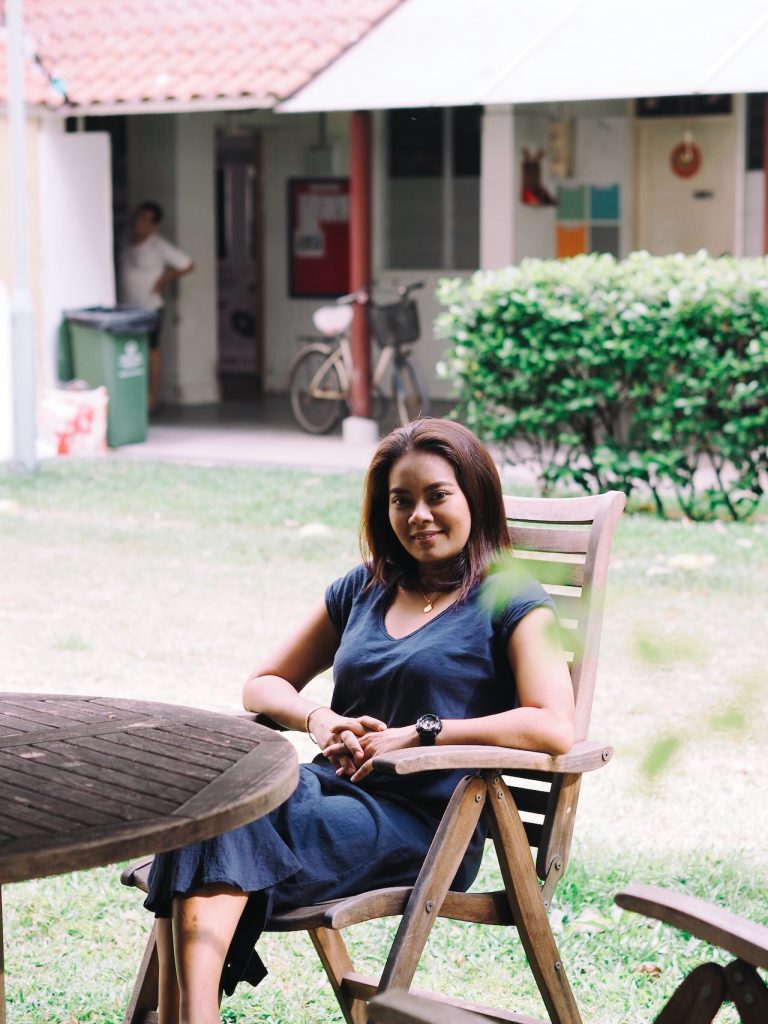
Her self-care methods also include going for manicures or colouring her hair at the salon; she indulges herself only when she gets good deals. To others, these might seem like frivolous wants, but she thinks it’s important to do what she enjoys just for herself.
Along this vein, Stella believes that just because someone is poor doesn’t mean they don’t deserve to enjoy “nice things”. She cites an example when Beyond Social Services took these women out for high tea at Royal Plaza on Scotts, allowing them to step into a space they might otherwise not have the confidence to enter.
No matter the ways that we choose to care for ourselves when we’re going through a hard time, Irene Moore (a volunteer with Bakers Beyond) reminds me that all of self-care essentially boils down to finding time for oneself.
As anyone who’s financially strapped will tell you, time is one of life’s most precious commodities. But the good thing is that a little is always better than nothing.
“I’m guessing that in lower-income families, you don’t have time to do the things you want to do, because you have to make money to keep your family fed,” she says.
“So for me, I just like to sit down and have a cup of tea. That’s five to 10 minutes and certainly helps with anything stressful. Even if you’re a full-time caregiver, there must be five minutes a day that you can take for yourself. Even if you have to run around and eat lunch on the go, there will be time in the day, even if it’s just before you go to bed, where you can relax.”
If you don’t have money to do anything else, at least do that, she advises.
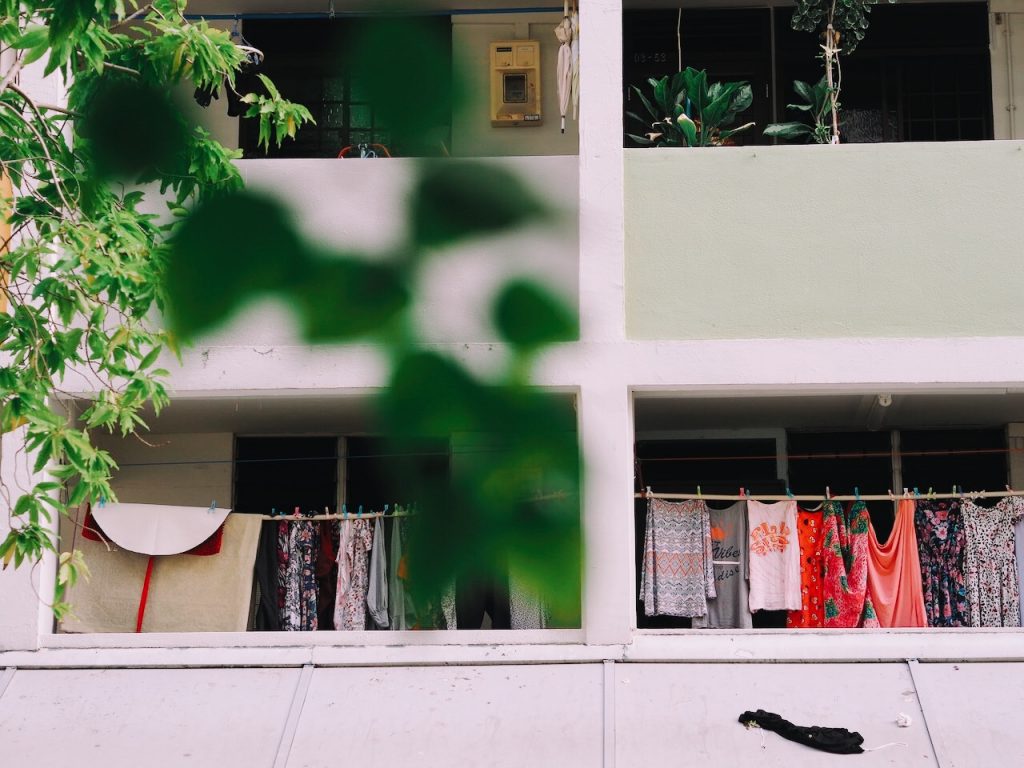
While no one should feel guilty for taking care of their own mental and emotional wellbeing—no matter the cost—my time with Bakers Beyond puts things into perspective.
For these women who come from the lower-income community, self-care is Whampoa Drive, friendship, walks in the park, spending time with children, sitting at the void deck after their family has fallen asleep in order to listen to music in peace, and 10 minutes spent drinking tea (or sometimes five).
These are all inherently good ways to care for oneself, but the lack of money strips the lower-income community of options. In the end, they might indulge in these methods of self-care simply because they have no choice.
It’s commonly said that the best things in life are free. So why do the lower-income seem to pay a higher price for them?
In conjunction with the International Day for the Eradication of Poverty on 17th October, we have teamed up with local NGOs to raise awareness of poverty and inequality in Singapore. Check out the Stand Together Festival for more information.
Have something to say about this story? Write to us at community@ricemedia.co.

